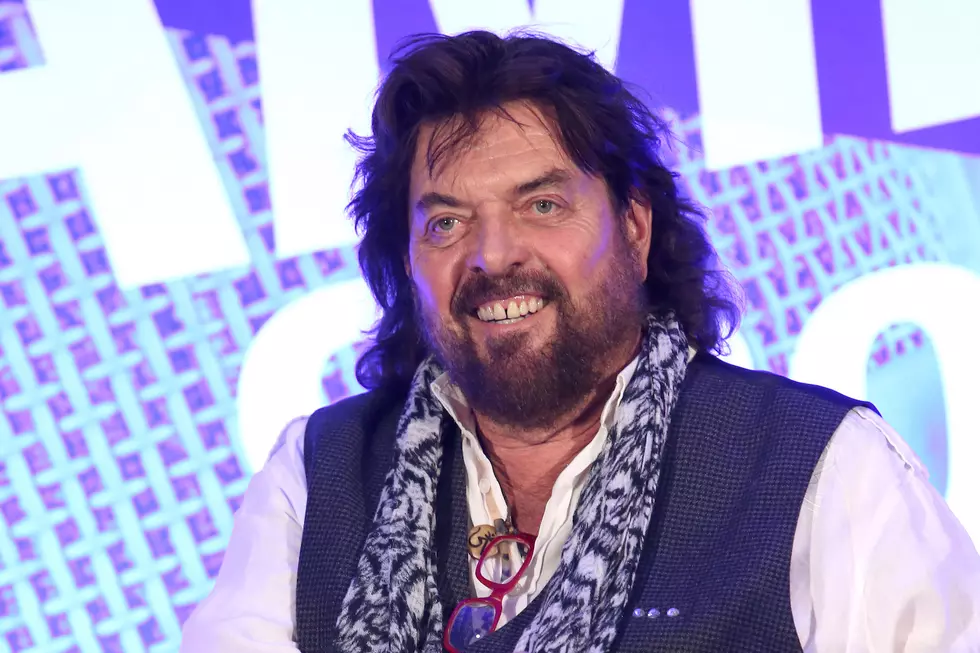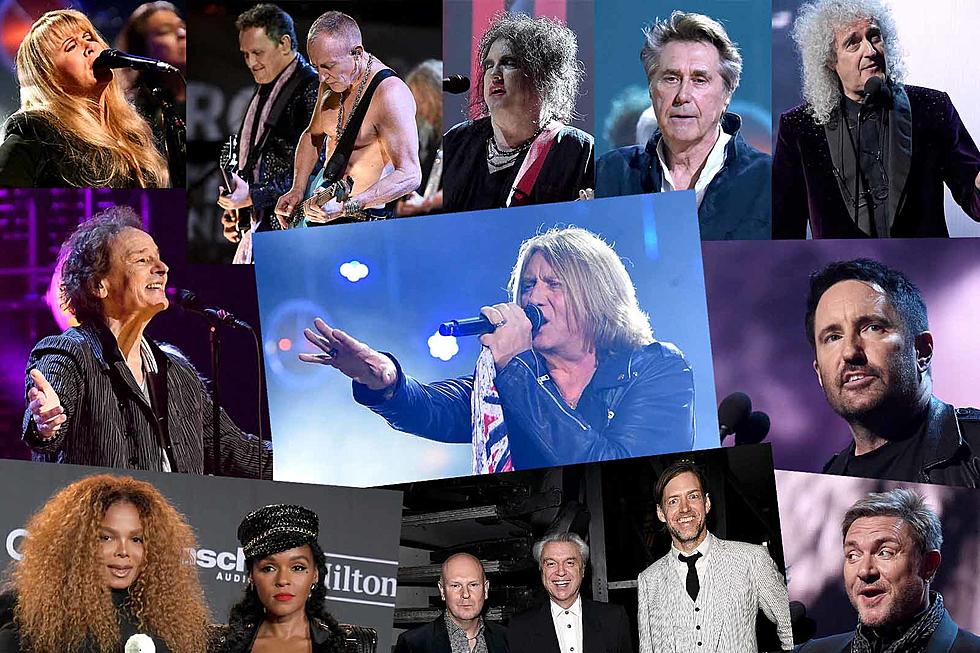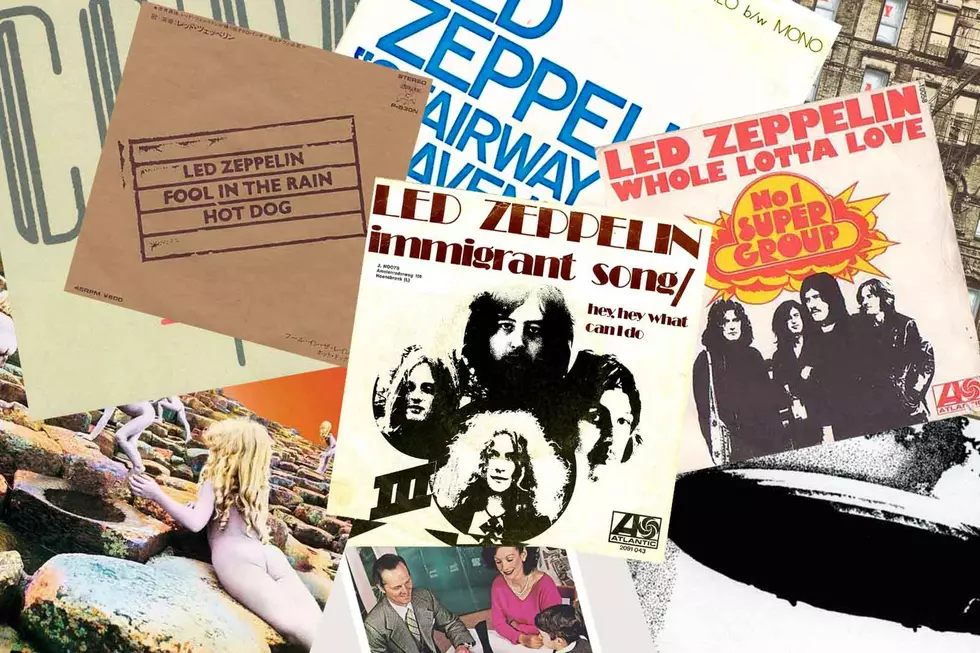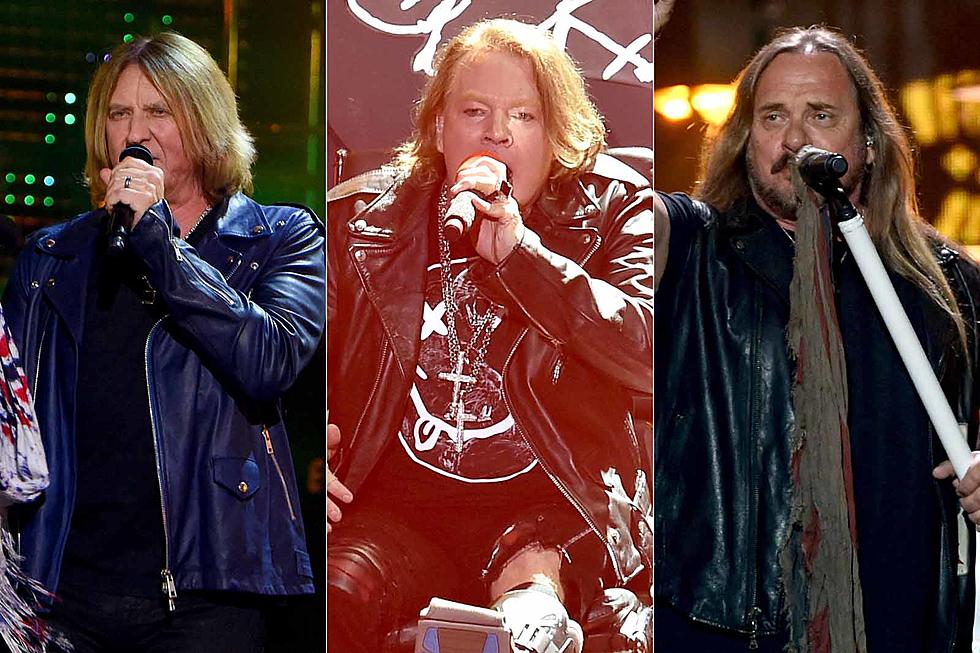
How Alan Parsons Completed a Return to Vintage Sounds on ‘The Secret': Interview
Alan Parsons' most recent solo album, A Valid Path, arrived 15 years ago as a voyage into spongey electronica and arty synth-pop. The album boasted a handful of major cameos (David Gilmour, Ambrosia's David Pack, Monty Python star John Cleese), but failed to capture imaginations like his beloved '70s- and '80s-era material with the Alan Parsons Project.
"It was very much an attempt to capture a younger audience," Parsons tells UCR, bluntly. "And I probably did capture a younger audience but not enough of them. [Laughs.] It just didn't do very well, didn't set the world alight."
Fittingly, his latest record serves as a course correction. The Secret is a U-turn back to the organic, lightly symphonic pop-rock style that propelled classic LPs like 1982's Eye in the Sky.
"When I signed with [Frontiers Records], they made it very clear: 'We want a record in the old style,'" he says. "I think that's what I've given them: an album that could have been slotted between any of the Alan Parsons Project albums over the years. I like to think that with any of the albums we made were pretty much timeless and didn't really fit into any particular decade or year. I feel the same way about this new album, that it could have been made at any time."
He started by committing to a vintage aesthetic, recording The Secret on analog equipment with a core group of musicians in his newly built California studio. Of course, it wouldn't be a Parsons solo album without guests: Former Genesis guitarist Steve Hackett appears on the orchestral overture "The Sorcerer's Apprentice," original Foreigner frontman Lou Gramm sits in on the theatrical ballad "Sometimes" and – in perhaps the biggest head-scratcher – singer-songwriter Jason Mraz joins Parsons for the seductive soft-rock anthem "Miracle."
Label pressure aside, this switch to a more band-oriented approach was actually already underway: For the past two decades, Parsons has made up for the lost time he used to spend holed up in the studio by touring a deep back catalog with his "Live Project." The production maverick sounds excited to be back in that head space.
Listen to Alan Parsons' 'Sometimes'
Obviously you've stayed busy over the past 15 years — touring, producing, and working on other projects. But why do you think it's taken so long for you to record a new album? Have you been working on these songs on and off over that time?
They all came together very quickly in the last 12 months. I essentially built a brand new recording studio here knowing that I had a record deal with Frontiers. Most of it was recorded here with the members of the band. I put out feelers: "Hey, anybody have any songs?" And of course they rushed forward with demos or songs. Some of them we tore apart and put back together again, some of them we revamped, and some we left pretty much alone. But the majority came from the band members. It's a really nice way to work, because the band all know each other and like hanging out together. It was like a family working together.
Steve Hackett played guitar on "The Sorcerer's Apprentice." How was that?
We were acquainted. We first met when we were both on tour in Italy and had lunch together with the concert promoter. We chatted a bit and talked music, and it was probably three or four years later that I had him in mind for "The Sorcerer's Apprentice." I knew we wanted to do a rock version, and we knew we wanted some fairly adventurous guitar parts on it. My feeling was that there were only two people who could have done this: either Brian May or Steve Hackett. It's a three-part harmony thing, and that's kind of perfect for him. We wrote everything out; it was a totally scored piece. But he read the parts and did a wonderful job.
Are you a Genesis fan?
I can't say I physically own any of the Genesis albums he played on, but I'm certainly a big fan. I think the only Genesis album I ever bought on vinyl was Duke. And I don't think he's on that, is he? [Editor's note: He isn't.] I was a huge Mike + the Mechanics fan as well. I'm on an Internet service where you can pretty much put in any band name, and it'll come up with [something like] Genesis Radio with related acts. And of course I can put my name in, and it'll play my stuff. [Laughs.]
Listen to Alan Parsons' 'Miracle'
It's interesting that Jason Mraz is a huge Eye in the Sky fan and wound up recording vocals on "Miracle," which does conjure the polished art-pop sound of that album.
Yeah, he actually said it could have been a song that didn't make it to that album. [Laughs.]
Did you know he was a fan of that track and pick him for that reason, or was that just serendipitous?
I did know. He'd actually recorded his own [unreleased] version of "Eye in the Sky." I don't know how long it was, but he sent it to me, and it was really good. I suggested he should put it out some time.
"One Note Symphony" is one of my favorite tracks on The Secret. I love the arrangement, the cosmic vibe of the lyrics, and how you somehow managed to make a single vocal note so catchy.
It is firmly entrenched in scientific principles. The reason we chose to sing it all on one note and call it "One Note Symphony" is that it refers to the resonant frequency of the universe, which is 7.83 Hz. It's called the Schumann Frequency. All things in life sort of resonate at that frequency, apparently. When it's reproduced, it makes the [ticking] sound on the intro. We've been commissioned to play that song at the 50th anniversary of the moon landing, which is coming up in July at Cocoa Beach, Fla., near the Kennedy Space Center. We're doing a concert there, and that song will sort of be the anthem for the moon landing.
You've been doing a lot of touring in recent years, and that fits into this album's aesthetic of a more organic, band-oriented approach.
We've always felt it was important in the live show to be reasonably close to the records, perhaps some more energy. But the notes and the arrangements are very close to what they are on the records. I think people appreciate that. A lot of bands insist on rearranging every song or doing previously electric songs acoustically or whatever, modifying melodies. We always try to capture the spirit of the recordings. It felt very natural just to have the guys play and work together as a team [in the studio]. That's the fun part of being a producer for me: working with the musicians and speaking their language. That's very important to me.
Masterpieces: Classic Rock's Very Best Albums
More From Kool 107.9










